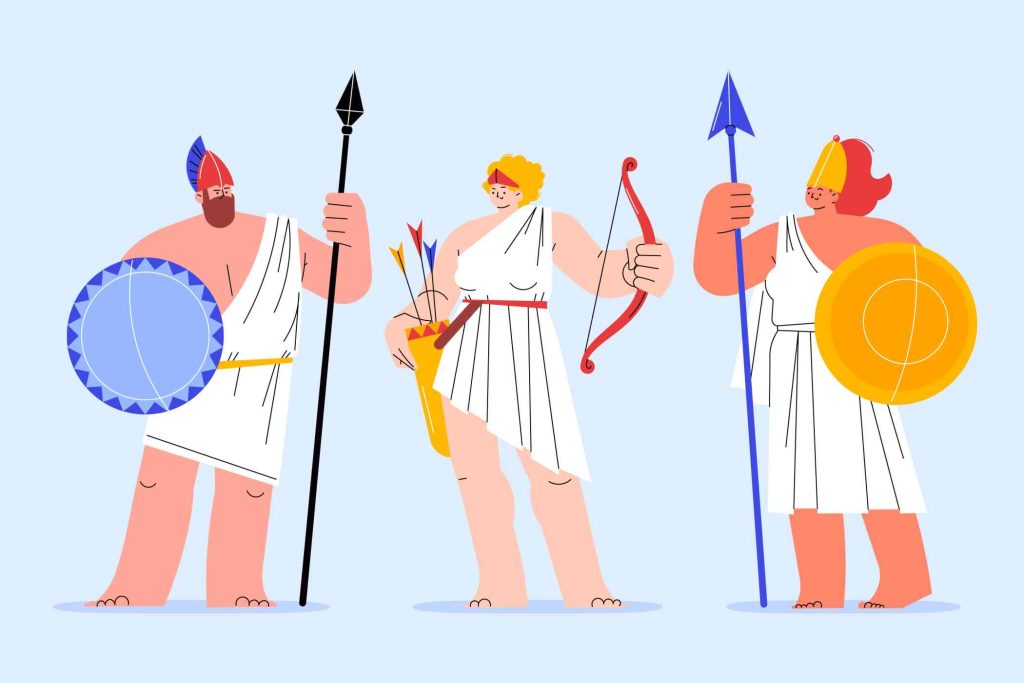The 5-thousand years old Greek civilization is often reputed to be one of the rocks on which Western culture has been built, and science and philosophy in Greek civilization have provided the very foundation for modern scientific thought. The progress of scientific discoveries in ancient Greece continued uninterruptedly for many centuries and was characterized by this movement: from mythological accounts of the world to observation-based inquiry and rationalism. This article discusses some key milestones and personalities whose contributions framed the course of scientific knowledge during this very lively historical time.
In early Greek thought, natural phenomena were often explained by mythology and gods. With time, the human beings coming to maturity became aware of searching for rational sources. It was with something like this event that the figures who have generated the foundations for much of the research were typically relegated to the period before Socrates: Thales of Miletus, for example, who in association with water considered all things as the original substance. By this, mind from the earlier supernatural causes came slowly to that observation and reasoning on which natural philosophy was established.
A third representative thinker of this generation is Anaximander, also from Miletus, who proposed the idea of the “apeiron,” or the limitless, as the root of all things. Anaximander’s thought foreshadowed later scientific principles, in that he sought to explain the cosmos through abstract ideations, rather than simple physical ones.
Although other great contributions to different subjects have come along, the most eminent was rendered by the Atomists, mainly by Leucippus and Democritus. Their bold idea-that of smaller, indivisible particles, or atoms, from which matter is built up-founded the way for all future scientific investigation in chemistry and physics. Although their tenets were not generally accepted for ages afterwards, yet, they formed important precedent for measurable thinking or the material world.
These were the phases of great development in mathematics, among which Pythagoras, Euclid, etc. Pythagoras is much remembered and known for his property of right angle triangle, which states the relationship between the three sides of a right triangle. He and his disciples laid emphasis on the sense of numerical relationships within understanding the universe, which was often evoked in Greek thought. The work of Euclid, and especially his great work named “Elements,” was meant to compile, organize, and narrate principles of geometry in systematic arrangement. These were typical records of their time towards adopting a more logical method of converting mathematics and sciences for shreds and years to come.
Aristotle, one of the most renowned scientists in the history of mankind, is the final point of the scientific thought of ancient Greece. His interests expanded in a manner as wide as from biology to physics and ethics to metaphysics. It extolled observation and classification as means of understanding the natural world. The ’empirical revolution’ that Aristotle introduced, however, was a systematic categorization of animals and plants, laying the groundwork for modern biological classification. While some of his theories, like the geocentric model of the universe, are later found to be incorrect, his methodology inspires generations of scientists to observe and reason logically.
Progression is the hallmark of the great journey of ancient Greek discoveries of science from mystical explanations toward a frame that would embrace method and, eventually, the experimental way of understanding the world. The early contributions of philosophers, mathematicians, and scientists set the public conventions on their heads and opened the way for future advancements. Their intellectual legacy would indeed be the proof of the unending human effort toward knowledge, illustrating how early on the seeds of modern science had been sown in the rich soil of ancient Greece. Today, all students of history and science studying the events of this wonderful period are reminded of how critical thinking and inquiry profoundly affect comprehending the eventful issues-be it within the cosmos or closer-in-the-world.







